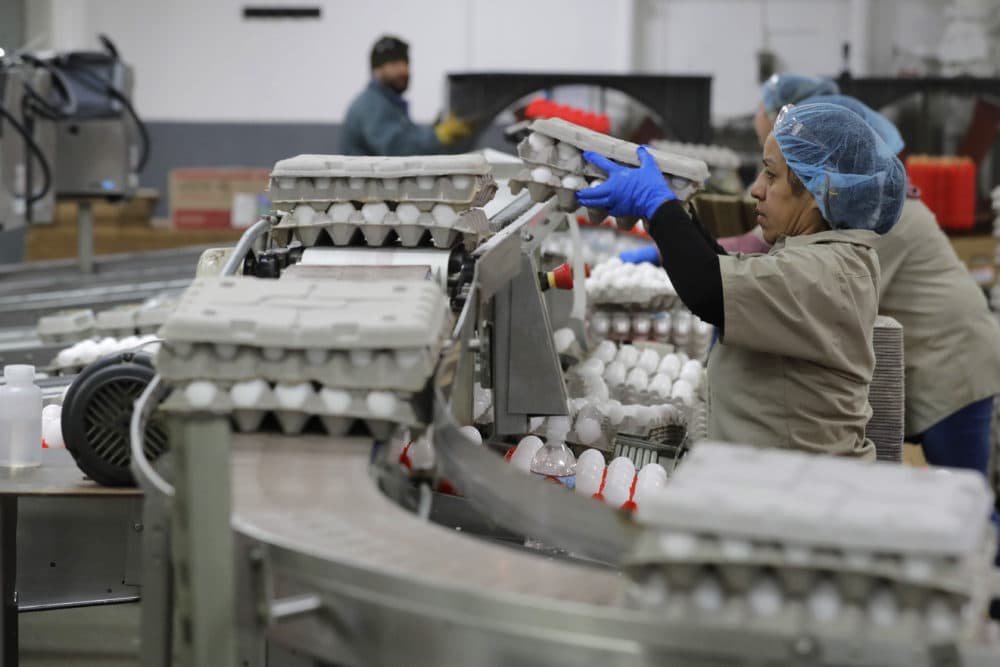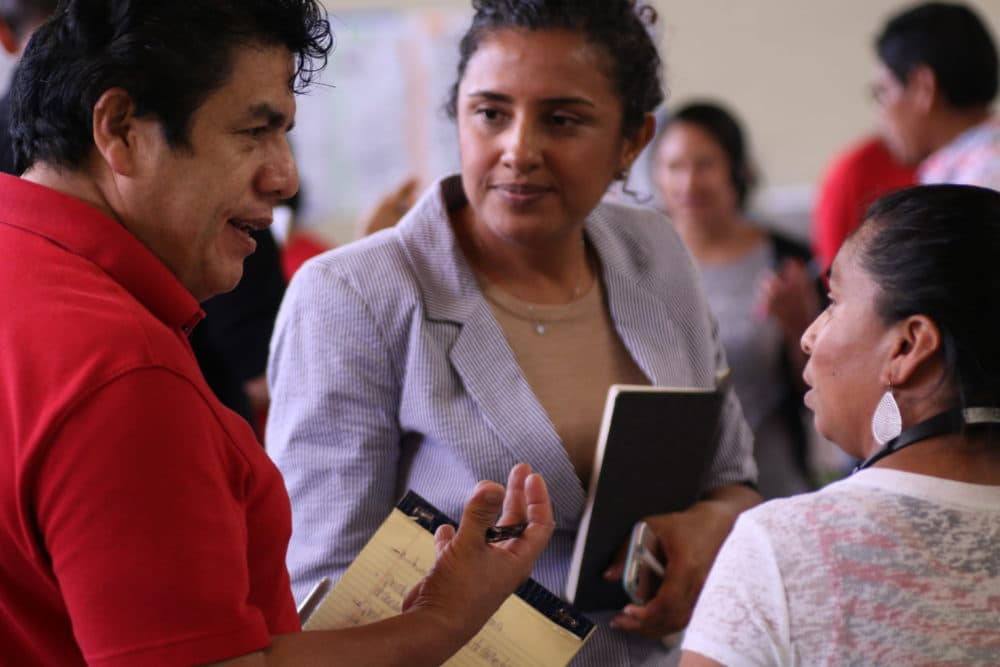Advertisement
Commentary
The Pandemic Is Hurting Women Workers Most Of All

If you’re a woman in a low-wage job in the United States, the coronavirus pandemic has most likely delivered a walloping blow to you and your family over the last month.
If you’re still working, you may be directly on the front lines — in a hospital or a grocery store, an assisted living facility or a restaurant. You’re exposed to the risk of infection all day, while earning less on the dollar than your male counterparts.
If you’ve lost your job, you’re now facing the reality of earning poverty wages: you’re scrambling to find a way to put food on the table, pay the rent, keep the lights on. If you’ve ever experienced the threat of violence in the home, that risk is now heightened — the heat turned up by close quarters, fear of contagion and economic anxiety.
This is a perilous moment for millions of women who’ve long worked on the margins. Women who are earning low wages in arduous jobs that keep the economy running, but are seldom acknowledged.
Political leaders have failed to seize myriad opportunities to build a stronger and more just economy with protections for the most vulnerable, including low-wage workers who are women. Now in this crisis, it’s vital to make sure our response addresses the needs of people living on the edge.
This is a perilous moment for millions of women who’ve long worked on the margins.
As the economy shutters, Oxfam America is hearing from women across the country who are suddenly facing unimaginable odds.
In Jackson, Mississippi — the poorest state in the country, where the virus is now spreading rapidly — a woman who goes by Ms.Diane, who had been a restaurant server for 43 years until now, is facing the end of the month with nothing in the bank. She has been supporting her son, grandson and great grandson on the tipped wage of $2.13 an hour. She told us:
We are devastated. Many of us are always one paycheck away from being evicted, being in the street, not having food. I have no money saved. I don’t know if I’ll be able to pay my bills. I spent my last couple dollars trying to get stuff we’ll need … some rice, pasta, bread, and froze a gallon of milk. I’m just hoping and praying.
In the hospitality industry, some 90% of housekeepers are female, mostly women of color and immigrants and refugees. In Boston, as many as 90% of hotel workers may be laid off. In Asheville, North Carolina, nearly all the restaurants and hotels have closed. Most of the workers there are women from Central America, many are single parents, supporting households.

Magaly Urdiales with the Western North Caroline Workers' Center in Asheville told Oxfam:
The picture here is of women supporting whole families. They have no savings — that is not reality when you make $10 an hour. Most of them don’t have money to pay next month’s rent, and the landlords won’t waive it.
Every major disaster strips the shiny cover off economic and social structures and reveals the bones underneath. COVID-19 has uncovered a frightening landscape in the U.S. today where marginalized people, especially women, are feeling the ultimate impact of systems that have been using them to do the hardest jobs with the fewest rewards.
In the short term, we need to take bold, swift action that builds on the recently passed bills in Congress. The latest relief package offers more funding for small businesses to help keep people on the payroll and provides for more testing, which are crucial measures for many women. Sadly, it fails to deliver the kind of new and transformational investments needed to address the scale of challenges working families across America and around the world are facing.
We need to increase monthly direct cash payments to a minimum of $2,400 — which is the equivalent of $15 per hour — and guarantee this payment for a minimum of four months to provide continuity and stability during this crisis.
Advertisement
Congress must remove the paid sick leave exemption during the pandemic that large employers were able to get in the recent relief bill. In addition to enhanced unemployment benefits, we must ensure that workers have the right to return to their previous place of employment if and when those businesses open again.
Work has dignity; workers have value; and it’s on us, now, to speak up for these women who’ve been the backbone of our economy for years.
There should also be a moratorium on evictions (as Massachusetts did recently) and utility shut-offs. And we need to extend benefits to those who have been working in the U.S. even without proper documentation — many of whom are hard-working women who’ve raised their families in this country.
Our government also needs to significantly expand funding for emergency shelters, so that people facing domestic violence can escape their abusers while social distancing.
In the long term, we need to rebuild an economy that properly rewards hard work. Policies like guaranteed paid family and medical leave, paid sick days and the elimination of the gender wage gap will go a long way toward creating the kind of balance that doesn’t leave millions teetering on the edge of bankruptcy every month.
Work has dignity; workers have value; and it’s on us, now, to speak up for these women who’ve been the backbone of our economy for years.
